In this article, we have compiled a list of types of yellow birds, as well as the types of birds that happen to be yellow. In addition, we will go over what types of food are healthy for these types of birds and give some tips on how to take care of them if you own one!
Table of Contents
- 1 What are yellow bird species?
- 2 List of birds that are yellow
- 2.1 Shore Lark
- 2.2 Domestic canary
- 2.3 European Goldfinch
- 2.4 American Goldfinch
- 2.5 Yellow Warbler
- 2.6 Prothonotary Warbler
- 2.7 Female Summer Tanager
- 2.8 Yellow-bellied Flycatcher
- 2.9 Great Tit
- 2.10 Citrine Wagtail
- 2.11 Yellow Wagtail
- 2.12 Zitting Cisticola
- 2.13 Amsterdam Albatross
- 2.14 Western Tanager
- 2.15 Yellow-Headed Blackbird
- 2.16 Yellow-Throated Vireo
- 2.17 Yellow-Breasted Chat
- 2.18 Golden-Winged Warbler
- 2.19 Dickcissel
- 2.20 Yellow-Crowned Night Heron
- 2.21 Lesser Goldfinch
- 2.22 Evening Grosbeak
- 2.23 Yellow-Billed Cuckoo
- 2.24 Common Yellowthroat
- 2.25 Black-Headed Grosbeak
- 2.26 Eastern Meadowlark
- 2.27 Wilson’s Warbler
- 2.28 Scissor-Tailed Flycatcher
- 2.29 Palm Warbler
- 2.30 American Redstart
- 2.31 Painted Bunting
- 2.32 Magnolia Warbler
- 2.33 Nashville Warbler
- 2.34 Pine Warbler
- 2.35 Verdin
- 2.36 Townsend Warbler
- 2.37 Chestnut-Sided Warbler
- 2.38 White-Eyed Vireo
- 2.39 Canada Warbler
- 2.40 Saffron Finch
- 2.41 Cape May Warbler
- 3 Frequently Asked Questions
- 3.1 What do yellow birds eat in the wild?
- 3.2 Which yellow bird species are best for beginners to keep as pets?
- 3.3 How can I attract yellow birds to my backyard?
- 3.4 What’s the difference between American and European goldfinches?
- 3.5 Are all yellow birds warblers?
- 3.6 How do I identify a yellow warbler from other yellow birds?
- 3.7 What healthy foods should I offer captive yellow birds?
- 3.8 Do yellow birds migrate, and where do they go?
- 3.9 What is the rarest yellow bird species?
- 3.10 How do yellow birds use their coloring for survival?
What are yellow bird species?
There are a lot of types of yellow birds out there, and we have compiled an extensive list for this article. In addition to the types of types that happen to be yellow, you’ll find information about what types of food these types can eat as well as some tips on how to take care of them! We hope you enjoy learning more about the different types of yellow birds in this article.
List of birds that are yellow
Shore Lark
The shore lark is a type of bird species with feathers that are mostly brown, but they also have some larger spots on their body and wings which can be yellow. They eat small insects and seeds as well as the shoots from young plants to help them survive in harsh weather conditions.
See more: https://www.rspb.org.uk/birds-and-wildlife/wildlife-guides/bird-a-z/shore-lark/
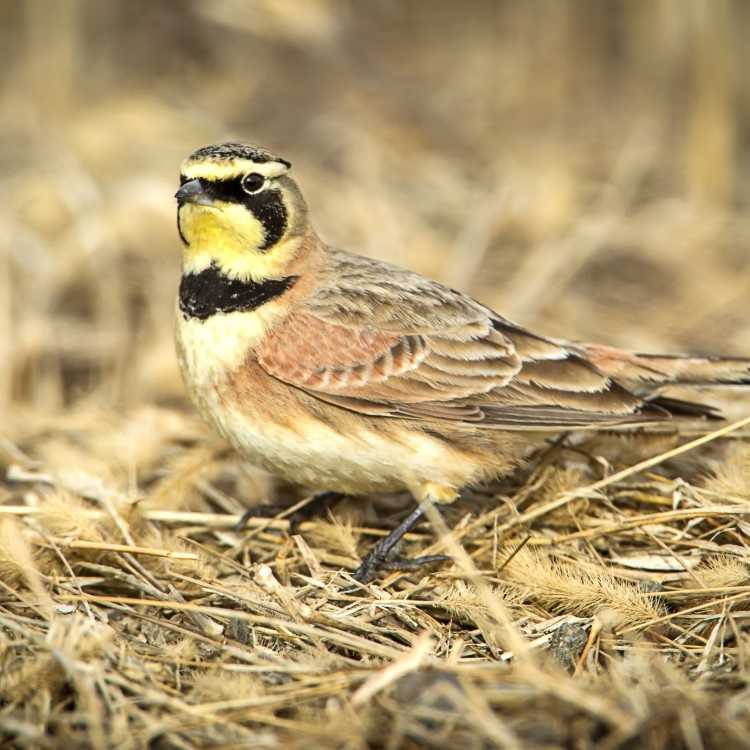
Domestic canary
The domesticated canary is a bird that has been bred in captivity for centuries, starting with the Spanish sailors who brought them home after capturing their island counterparts. This particular type of Finch was first seen by English monks during this time because only males were sold at first so they could keep up supply and drive up prices even higher than before! (read more about the Canary Symbolism)
See more: https://en.wikipedia.org/wiki/Domestic_canary
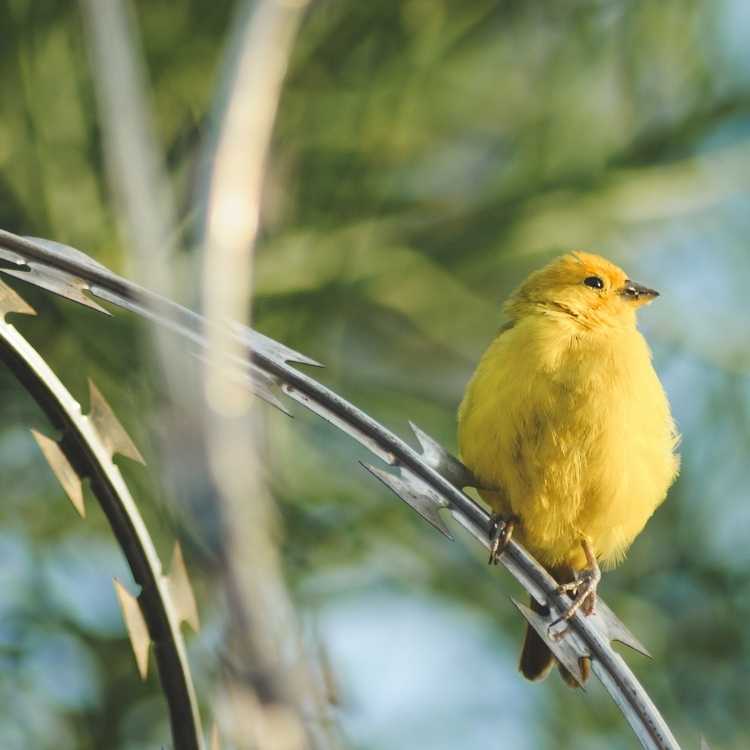
European Goldfinch
This type has black eyes and a red belly made up of bold stripes. Their wings might be yellow or orange depending on what region you live in! These types love to munch on various types of seeds such as sunflower seeds, coriander, millet sprays, etc., so try providing those types for your goldfinch if you own one yourself!
See more: https://en.wikipedia.org/wiki/European_goldfinch
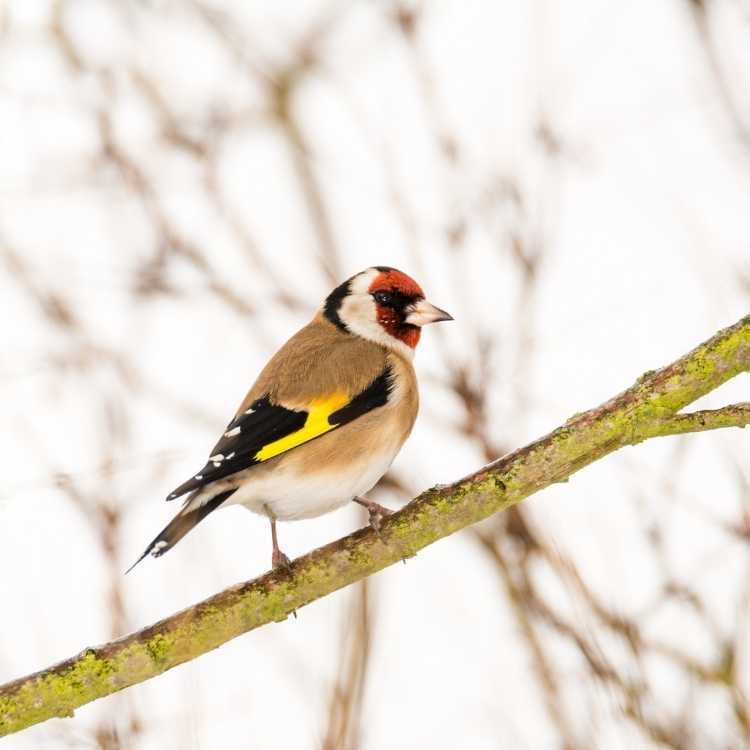
American Goldfinch
These types are very similar to European types, except for the fact that they have yellow wings instead of orange. Other than that, these types also love seeds and other types of food just like their counterparts! (read more about the Goldfinch here)
See more: https://en.wikipedia.org/wiki/American_goldfinch

Yellow Warbler
This bird has a yellow belly and white spots on its wings. They enjoy eating small types of insects as well as the nectar from flowers! If you have some types of plants in your backyard, they will surely appreciate it if you put up bird feeders to attract these types! In another post, we compared two more famous yellow birds: Pine Warbler vs Goldfinch.
See more: https://www.allaboutbirds.org/guide/Yellow_Warbler/id
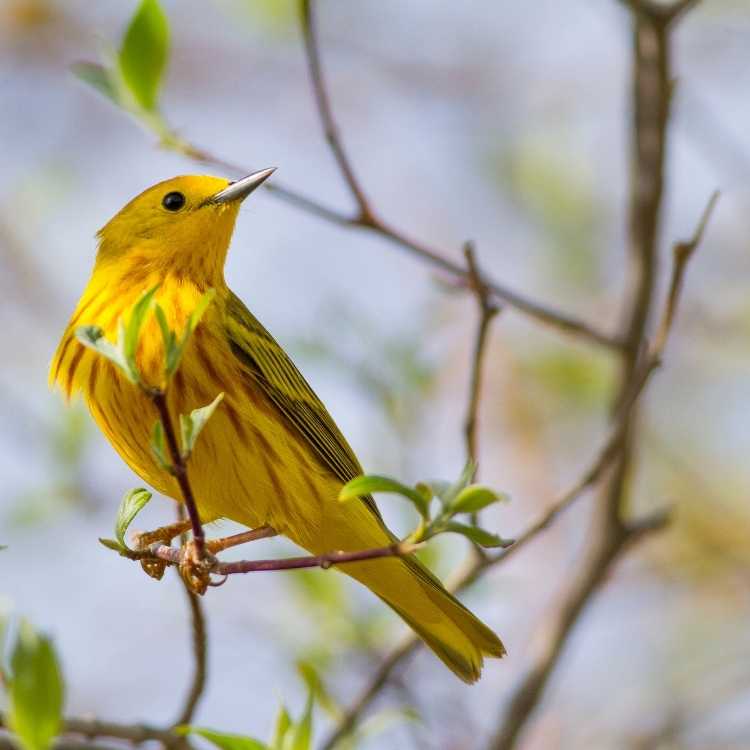
Prothonotary Warbler
This bird is mostly yellow with some types of blue and green on it. They love types of worms, small types of insects, as well as nectar from flowers! To attract types of these types, try planting some types of flowers in your backyard!
See more: https://ebird.org/species/prowar
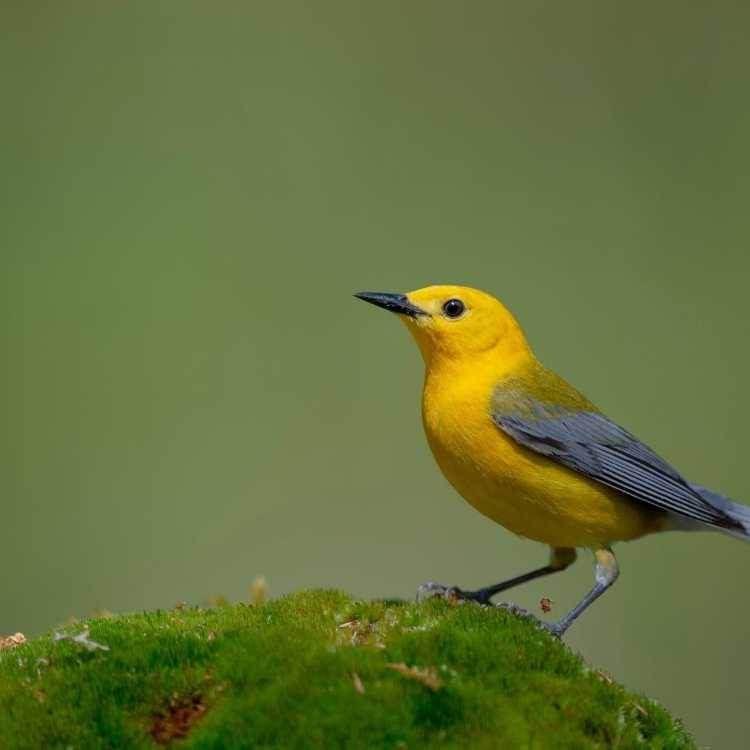
Female Summer Tanager
This type of bird has a yellow body with red streaks that are most visible on the wings. They eat types of insects, berries, and seeds to help them survive in harsh weather conditions! If you have types of plants in your backyard, they will surely appreciate it if you put up bird feeders to attract these types!
See more: https://www.allaboutbirds.org/guide/Summer_Tanager/id
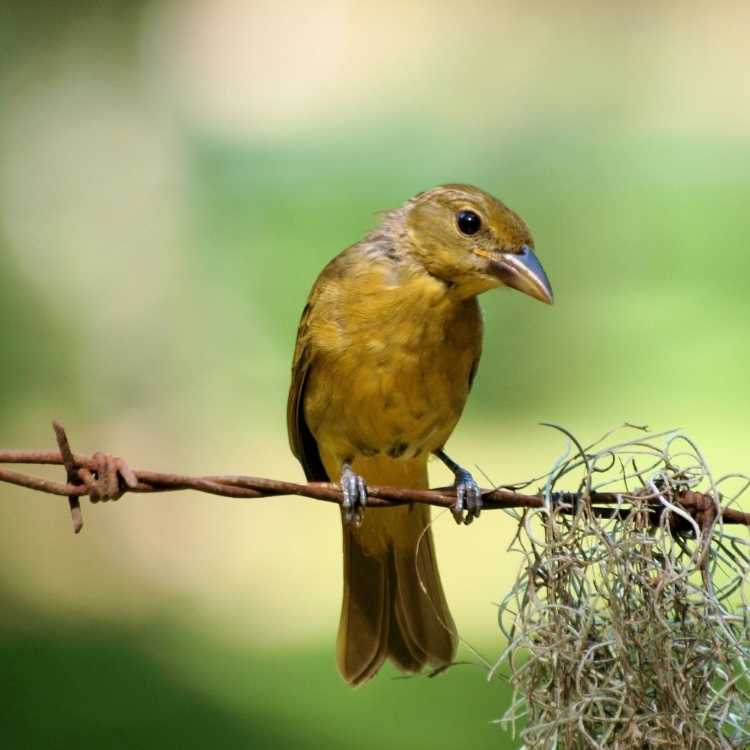
Yellow-bellied Flycatcher
These types have a very unique look when you compare them to other birds in this article since they have a black stripe that goes around their head which separates the brown top part from the yellow belly. In addition to being mainly yellow, these types also have white spots on their wings and tail feathers! If you own one of these types yourself, try feeding them different types of berries such as mulberry leaves along with smaller bugs like grasshoppers for food!
See more: https://www.allaboutbirds.org/guide/Yellow-bellied_Flycatcher/id
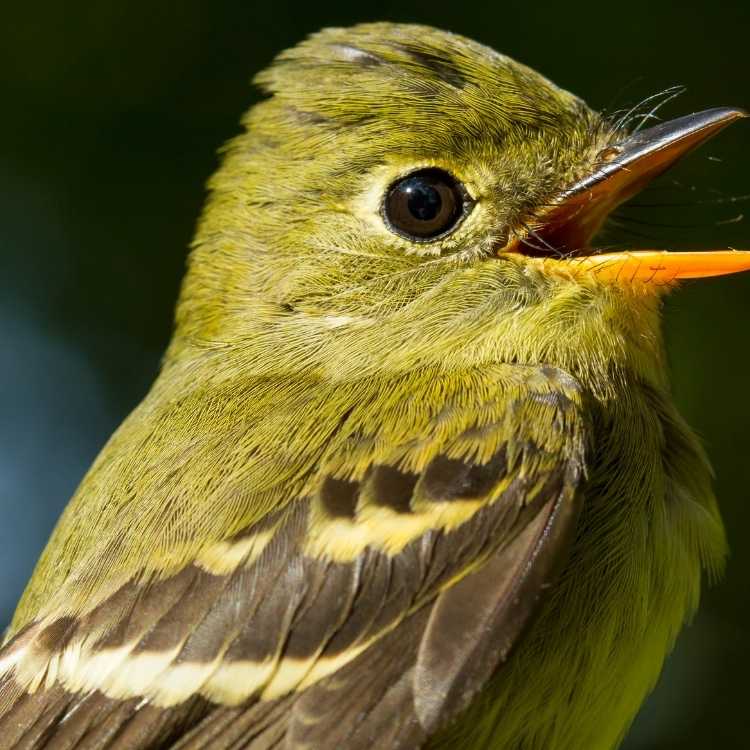
Great Tit
These birds are mostly green with a yellow underside. They have red eyes and their beaks can also either be gray or orange in color depending on the region where they are living! These types of birds munch on various types of seeds, insects, or even small amphibians to help them survive. Check also our comparison: Coal Tit Vs Great Tit.
See more: https://en.wikipedia.org/wiki/Great_tit
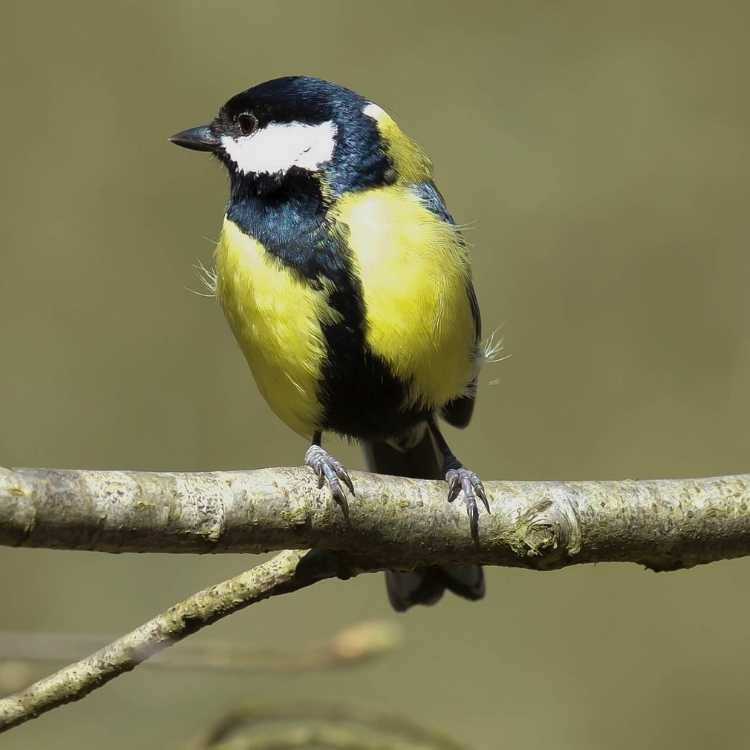
Citrine Wagtail
The citrine wagtail is a type that lives in the colder regions where they feed mostly off of aquatic invertebrates as well as some types of worms and larvae. They also love to eat fish eggs if you’re looking for what types are healthy for your yellow bird!
See more: https://ebird.org/species/citwag
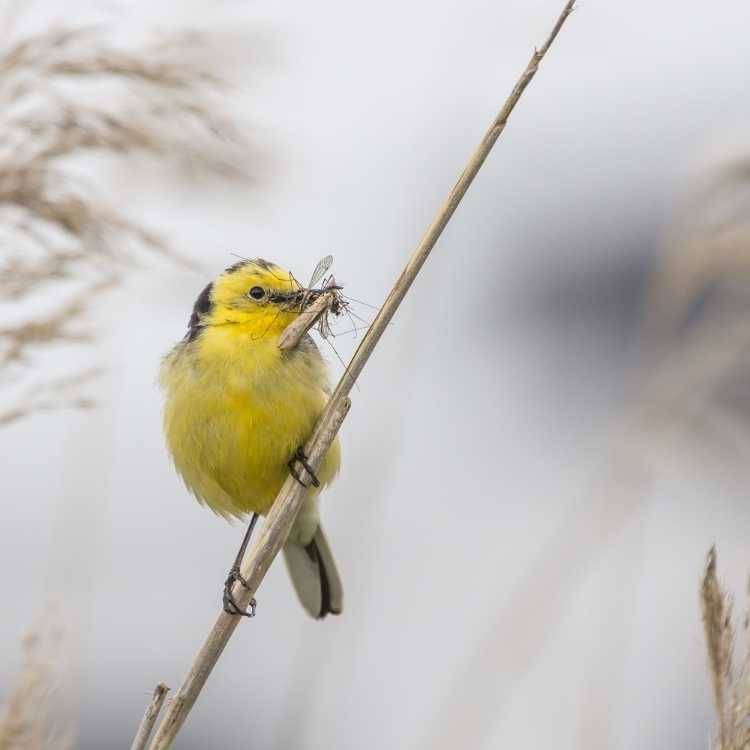
Yellow Wagtail
The yellow wagtail can be found throughout Europe and Asia in countries like Russia, China, Japan, and the United Kingdom. They will eat types of invertebrates such as spiders and flies in addition to seeds, berries, or fruit if they happen to be available!
See more: https://en.wikipedia.org/wiki/Western_yellow_wagtail
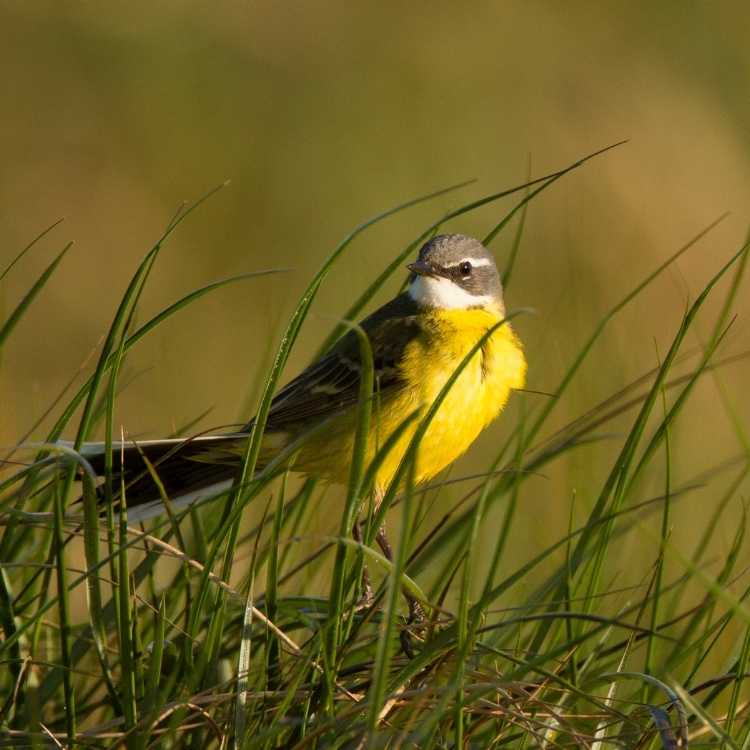
Zitting Cisticola
This type has a brown body with some white patches across its wings when you look at them from above. Their underside is mostly yellow though with an orange belly that can also have some red markings on it too! These types munch on various types of insects along with small amphibians if they are able to find them when living out in nature.
See more: https://en.wikipedia.org/wiki/Zitting_cisticola
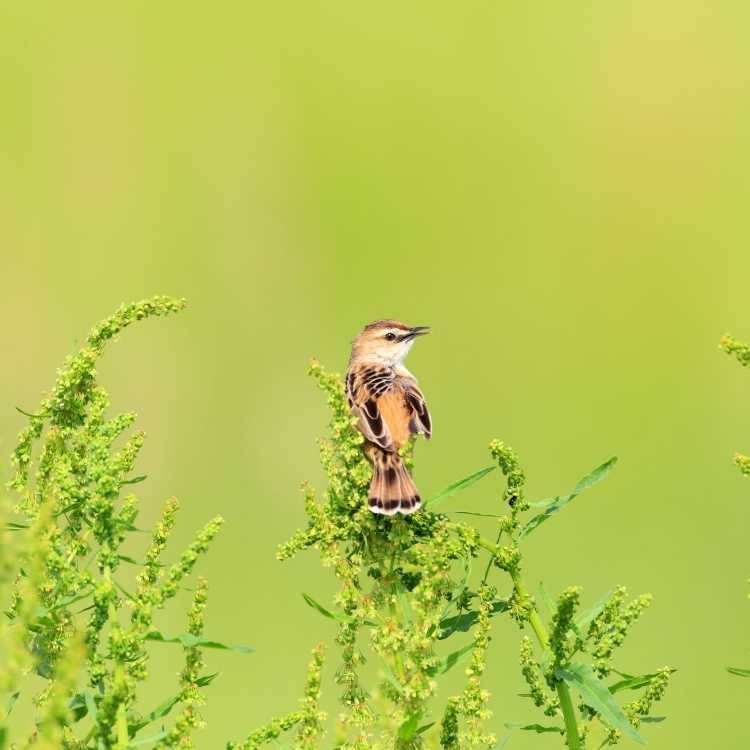
Amsterdam Albatross
This type is mostly black but has a large yellow patch on its wing and some types of white coloration underneath. They like to eat types of fish such as sardines and anchovies along with squid, plankton, crustaceans, etc. if they are able to find them when living out in nature! (read more about the Albatross symbolism)
See more: http://datazone.birdlife.org/species/factsheet/amsterdam-albatross-diomedea-amsterdamensis
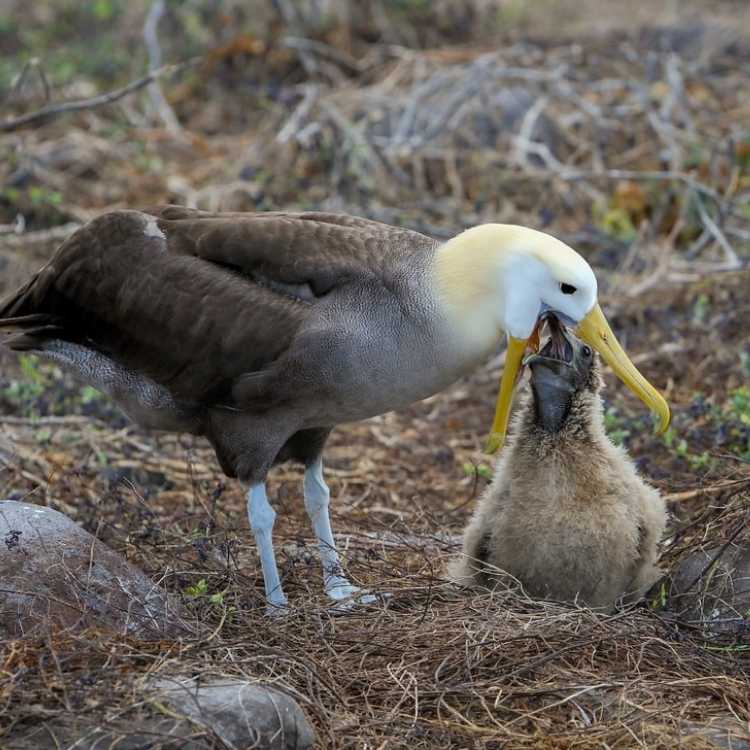
Western Tanager
This bird can be found all throughout North America as well as South America. They like to eat types of berries, seeds, and insects such as beetles or types of grasshoppers to help them survive in nature! If you have types of plants covering your backyard landscape, they will surely appreciate it if you put up bird feeders to attract these types!
See more: https://en.wikipedia.org/wiki/Western_tanager
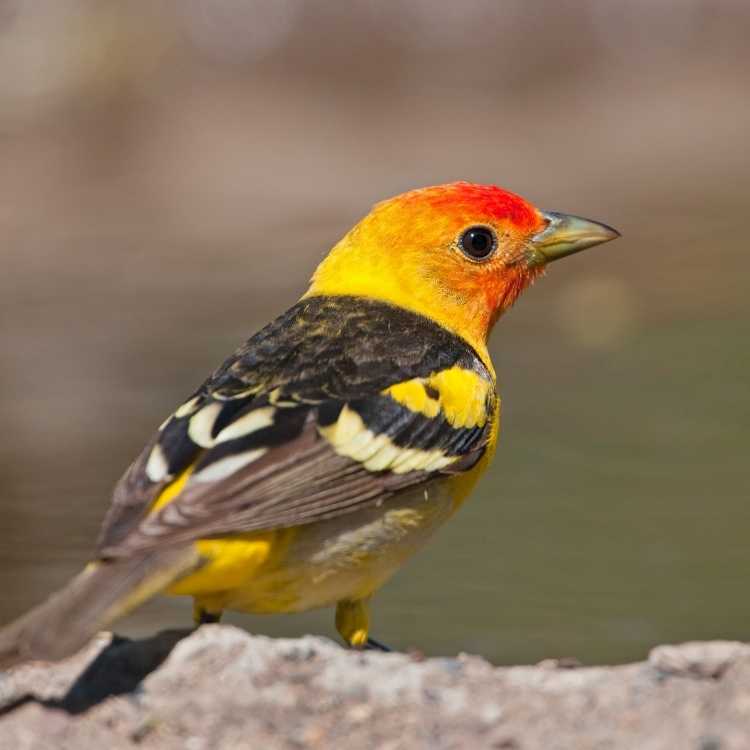
Yellow-Headed Blackbird
This type of bird is fairly large and has a yellow head as well as some types of white markings on its wings. They will eat types of seeds, berries, types of fruits, insects such as types of grasshoppers, or types of beetles depending on where they live! If you have types of plants covering your backyard landscape, these birds will surely appreciate it if you put up feeders to attract them (read more about the spiritual meaning of the blackbird)!
See more: https://www.allaboutbirds.org/guide/Yellow-headed_Blackbird/overview
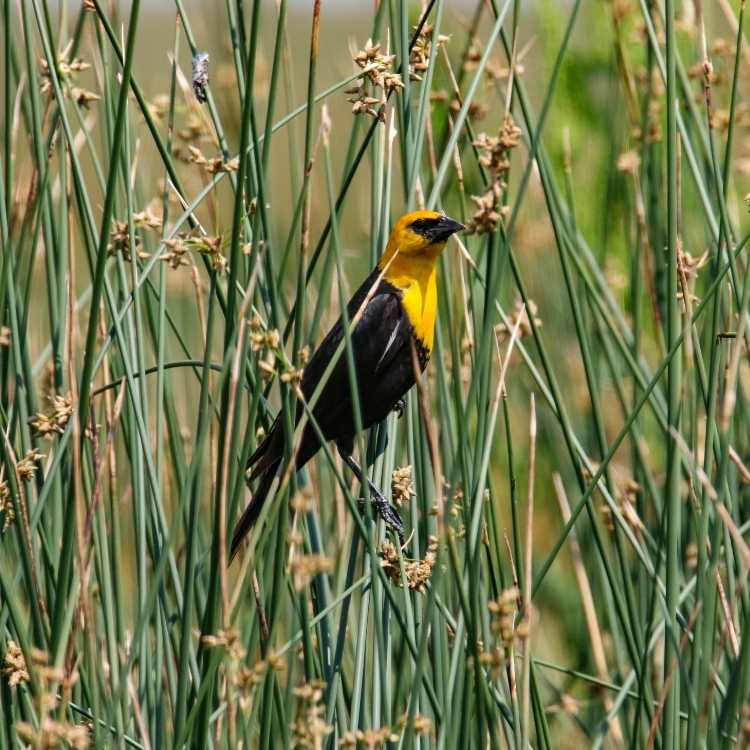
Yellow-Throated Vireo
This type has a yellow head with types of white streaks on its wings. It also eats types of invertebrates such as types of grasshoppers or types of spiders in addition to seeds, fruits, berries, etc. if they happen to be available! They are generally active during the warmer months when you may see them hanging out near your feeders while eating what types are there!
See more: https://www.allaboutbirds.org/guide/Yellow-throated_Vireo/id
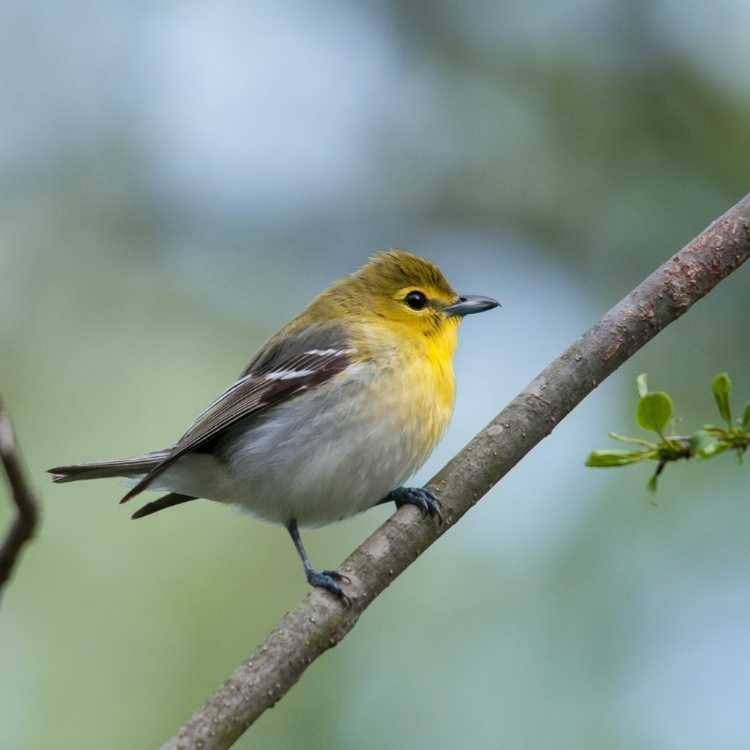
Yellow-Breasted Chat
This bird is mostly black but has some types of orange feathers underneath it that will show up when this bird spreads its wings open while flying or displaying itself for the mating season (this species’ male and female look very similar). These types like eating insects which can include beetles and dragonflies along with various types of seeds depending on where they live!
It’s easy to miss the yellow-breasted chat, but this shy bird is found in dense brushy areas and hedgerows. They build bulky nests made of grasses leaves strips of bark or stems mixed with weeds for lining it up tightly against thick shrubs 2 feet above ground level!
See more: https://www.allaboutbirds.org/guide/Yellow-breasted_Chat/id
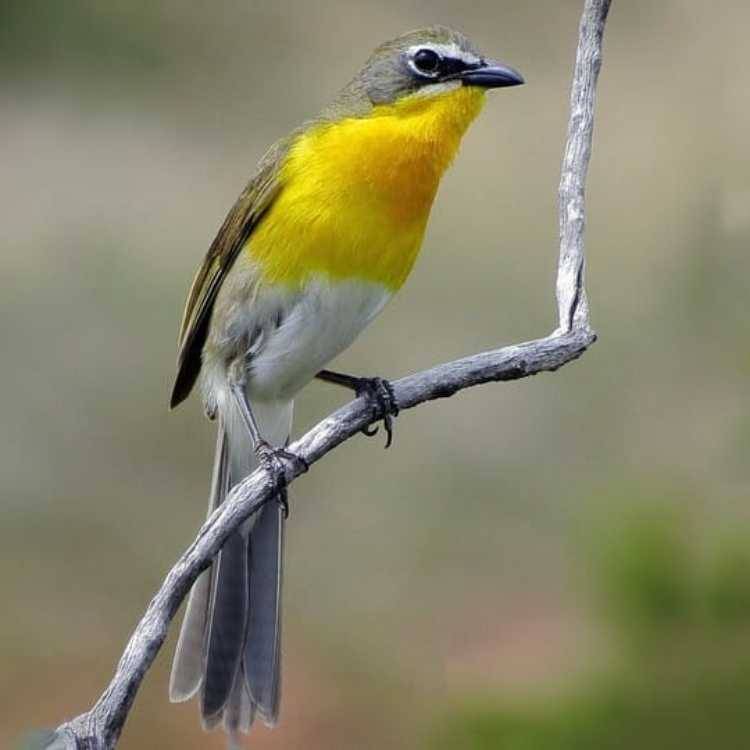
Golden-Winged Warbler
The golden-winged warbler is a small bird with some types of yellow colors along the underside whereas other parts can be mostly black depending on what region this species lives in. When eating through different regions it prefers eating various types such as grasshoppers and types of beetles or types of spiders if they are able to find them.
See more: https://www.allaboutbirds.org/guide/Golden-winged_Warbler/id
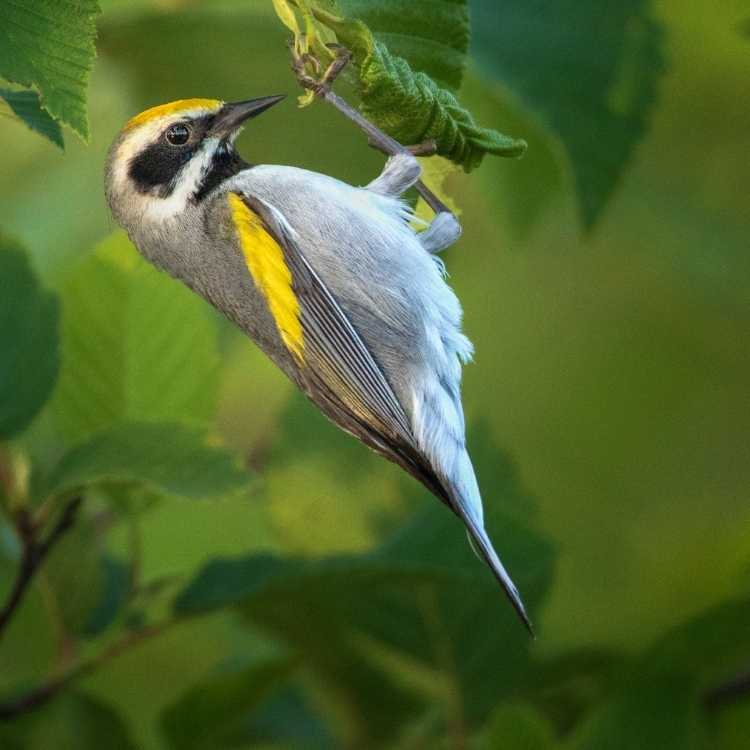
Dickcissel
The dickcissel is a type of bird that has types of red, yellow, and black markings on it. It will eat types such as seeds and other types of insects if they can be found when living out in nature!
See more: https://en.wikipedia.org/wiki/Dickcissel
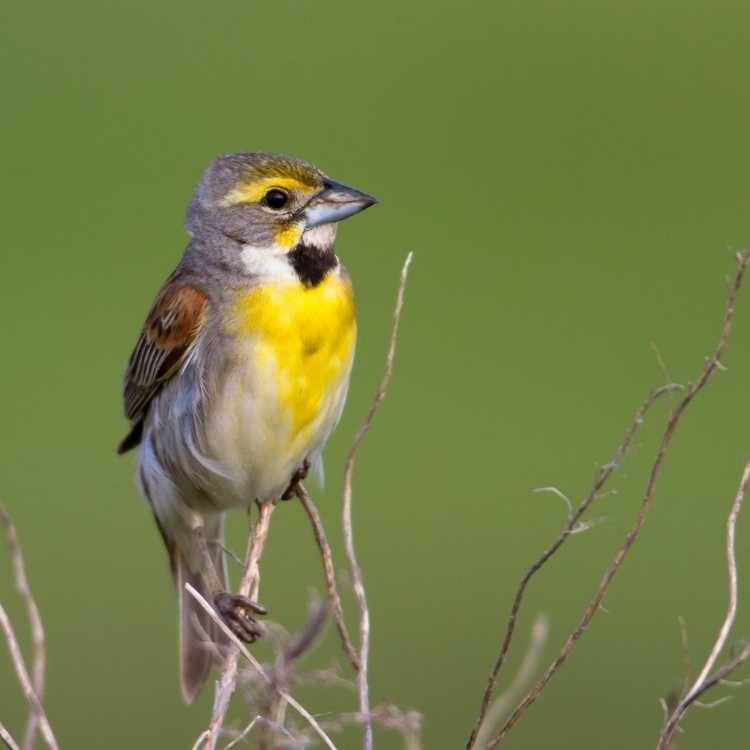
Yellow-Crowned Night Heron
This large heron species lives mostly near water areas where types like fish or other types of aquatic lifeforms are available to hunt for the night herons’ diet! Sometimes types of crustaceans may also make an appearance depending on what region you live in whereas these particular birds prefer hunting during nighttime hours (read more about the Heron symbolism here)
See more: https://en.wikipedia.org/wiki/Yellow-crowned_night_heron
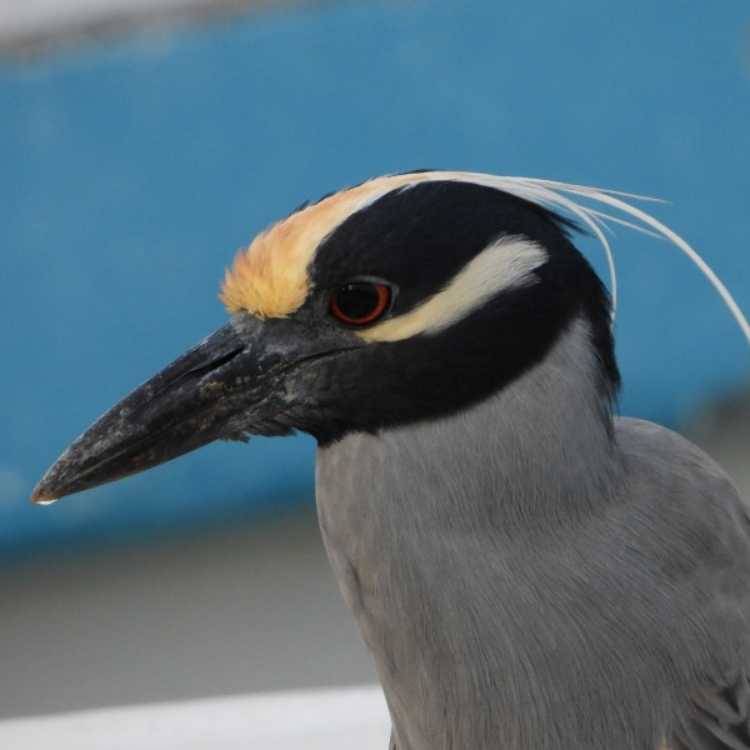
Lesser Goldfinch
The lesser goldfinch has some orange and yellow feathers (check our post about the yellow feather meaning) underneath its wings which show up well when these types spread their wings open while flying or types of displaying themselves for the mating season. These types are able to live in various types of habitats when types such as seeds, fruits, berries, insects can be found depending on what type is available!
See more: https://www.allaboutbirds.org/guide/Lesser_Goldfinch/id
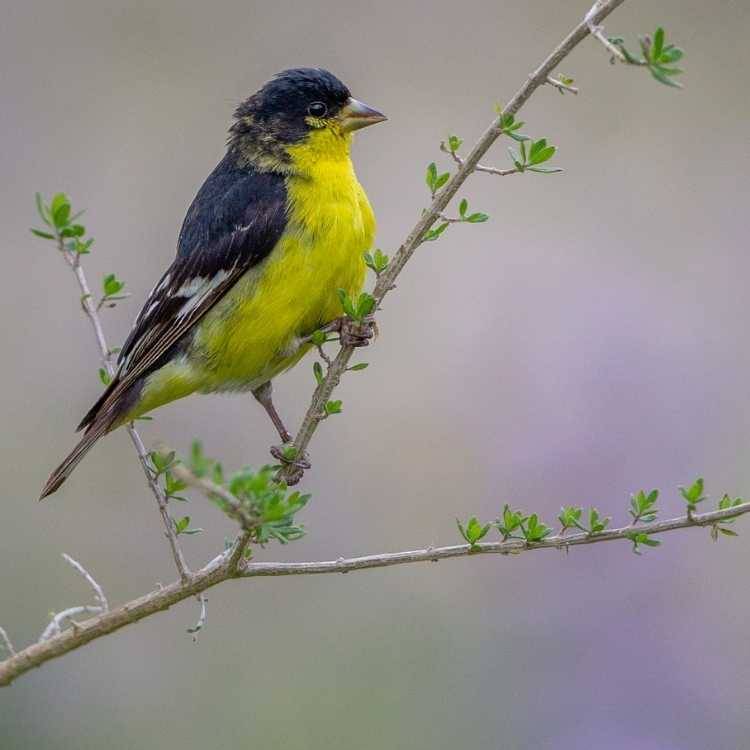
Evening Grosbeak
This type of bird is black with types of yellow underneath its wings when they are spread open while flying or types of displaying themselves. These types prefer eating various types such as grasshoppers, beetles, and type insects which can include spiders depending on what region this species lives in!
See more: https://www.audubon.org/field-guide/bird/evening-grosbeak
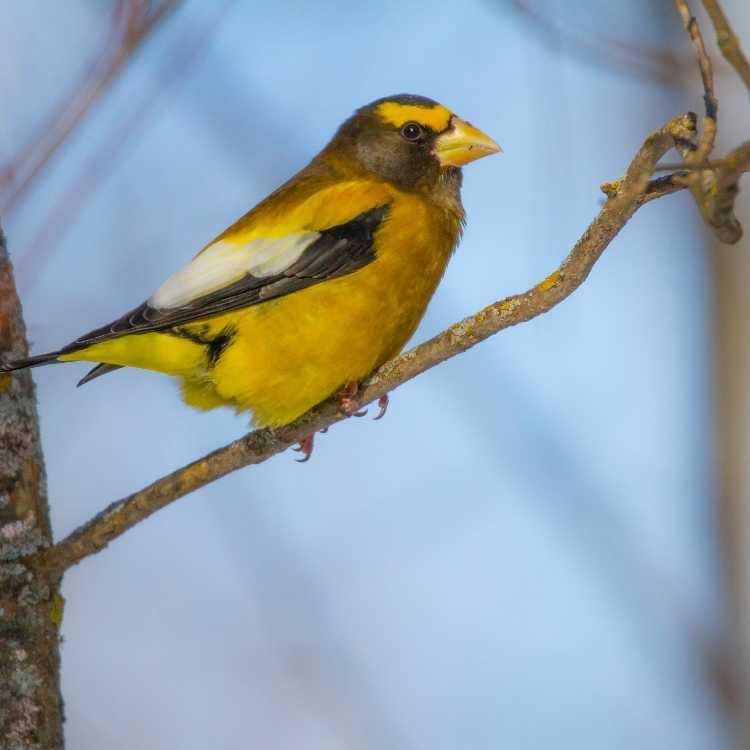
Yellow-Billed Cuckoo
The yellow-billed cuckoo has some types of orange feathers underneath its wing along the underside whereas other parts are either more brownish/black depending on where these types live in nature! They will eat whatever is available when living out in nature including eating different types like bugs that have a variety to them depending on what part you’re able to find most easily!
See more: https://www.allaboutbirds.org/guide/Yellow-billed_Cuckoo/overview
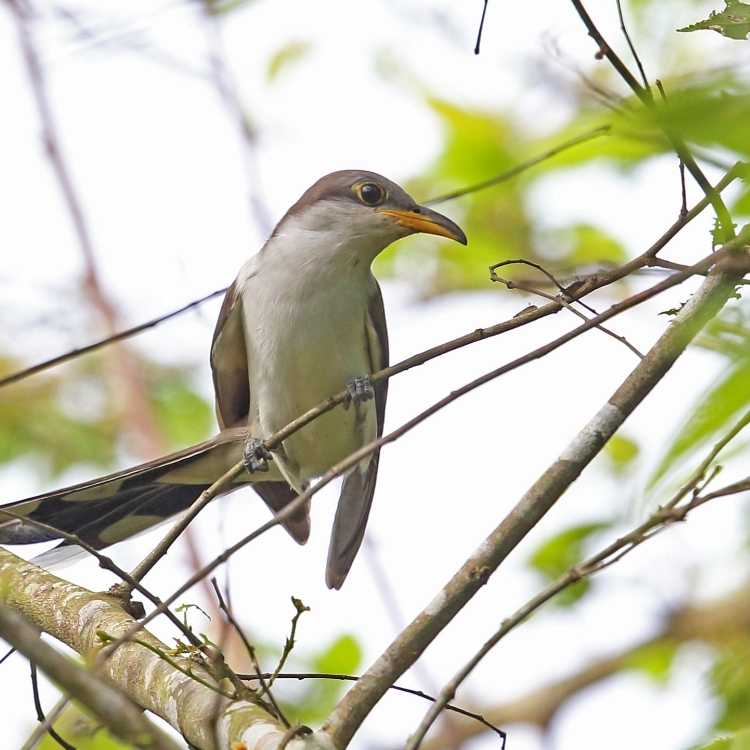
Common Yellowthroat
The common yellowthroat is another type of bird that has types of white markings underneath its wings when they are spread open while flying or types of displaying themselves for the mating season. These types prefer eating various types such as seeds, berries, fruits, grasshoppers depending on what part you’re able to find most easily!
See more: https://www.allaboutbirds.org/guide/Common_Yellowthroat/id
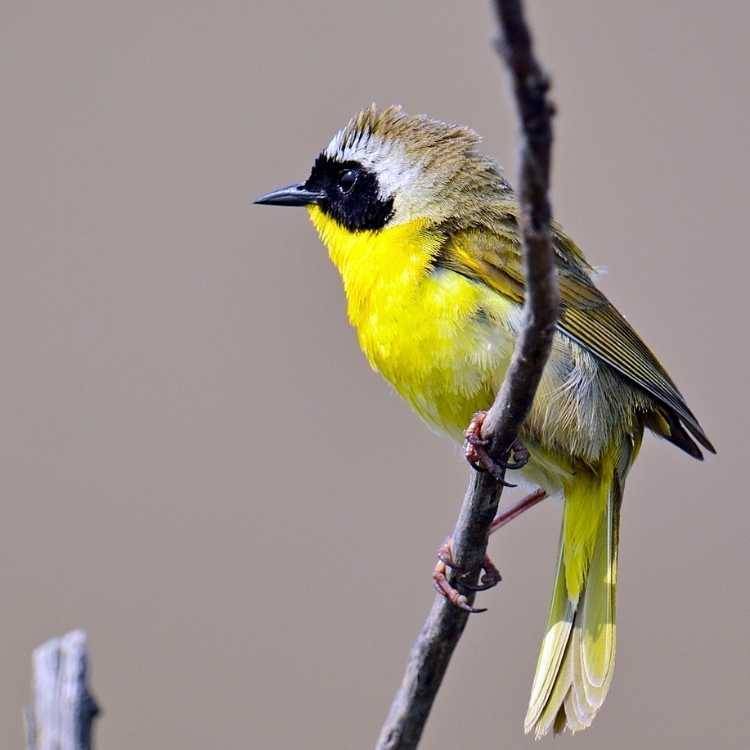
Black-Headed Grosbeak
The black-headed grosbeak has types of orange, yellow, and types black feathers underneath its wings when they are spread open while flying or types of displaying themselves for the mating season. They prefer eating various types such as seeds, grasshoppers depending on what part you’re able to find most easily!
See more: https://www.allaboutbirds.org/guide/Black-headed_Grosbeak/id
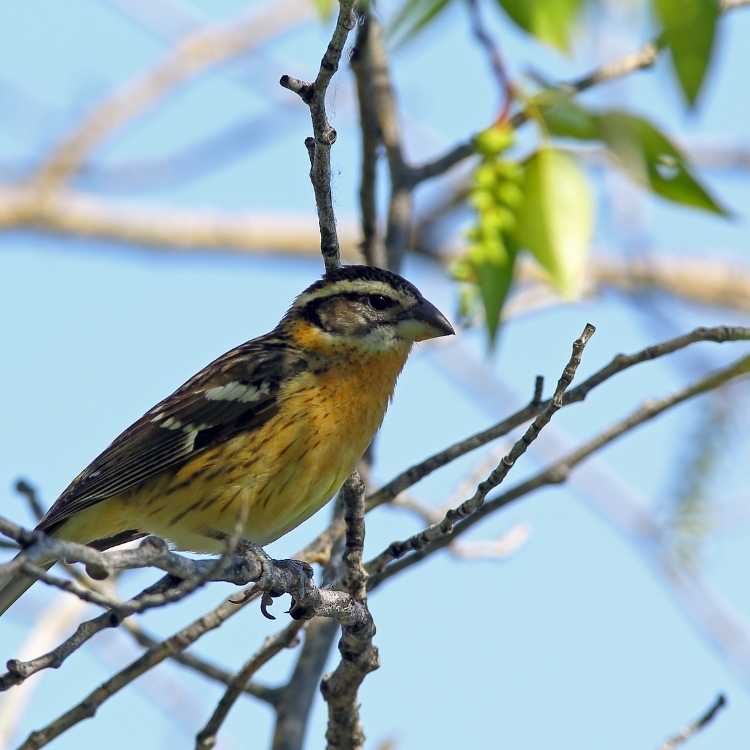
Eastern Meadowlark
The eastern meadowlark is another type of bird that eats mostly insects like beetles along with other types like spiders if they can be found when living out in nature! These types also eat different colors like seeds and fruits depending on what’s available in your area! Some things these types will mix together throughout their diets including both invertebrates/seeds/fruit all mixed together!
See more: https://en.wikipedia.org/wiki/Eastern_meadowlark
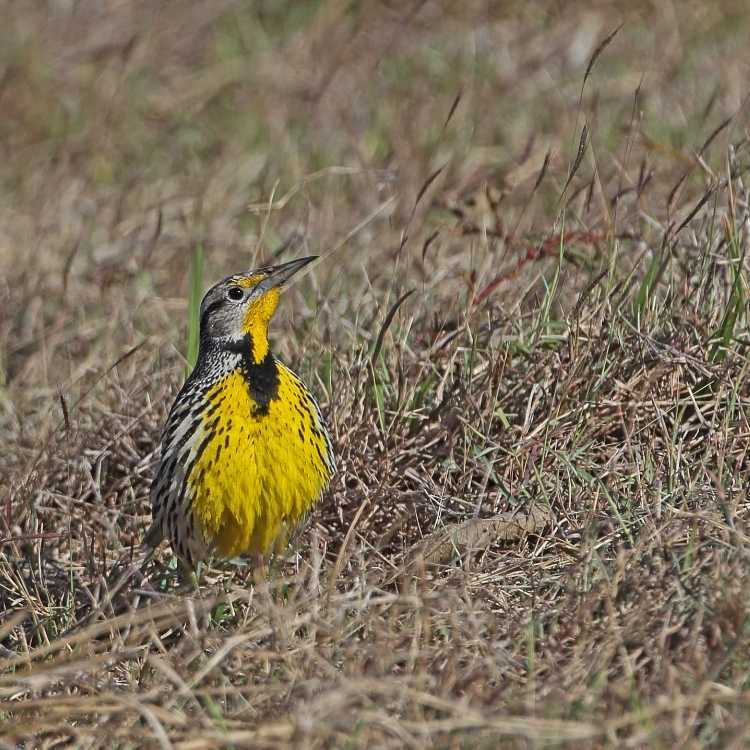
Wilson’s Warbler
The Wilson’s Warbler types have types of yellow and black markings underneath their wings when they are spread open while flying or types of displaying themselves. These types prefer eating various different types such as seeds, berries, fruit depending on what’s available in your area!
See more: https://www.allaboutbirds.org/guide/Wilsons_Warbler/id
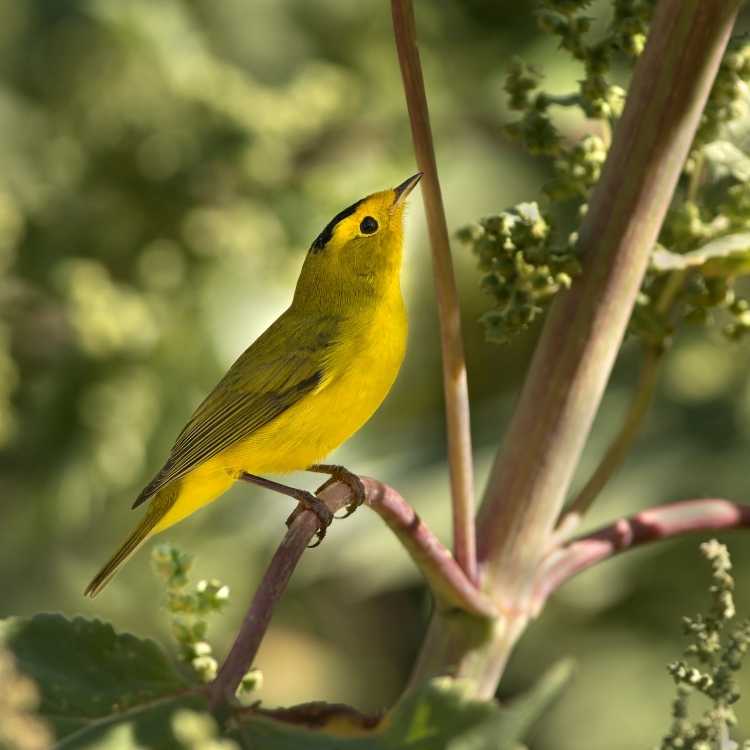
Scissor-Tailed Flycatcher
This type has types of blue/black feathers underneath its wing with a patch that is more red and yellow which shows up well when these types fly by spreading their wings apart wide enough to show all the colors properly! Types like insects may be eaten sometimes depending on what region this species lives in along with other things including fruits if it can be found around where this bird typically hangs out throughout nature.
See more: https://en.wikipedia.org/wiki/Scissor-tailed_flycatcher
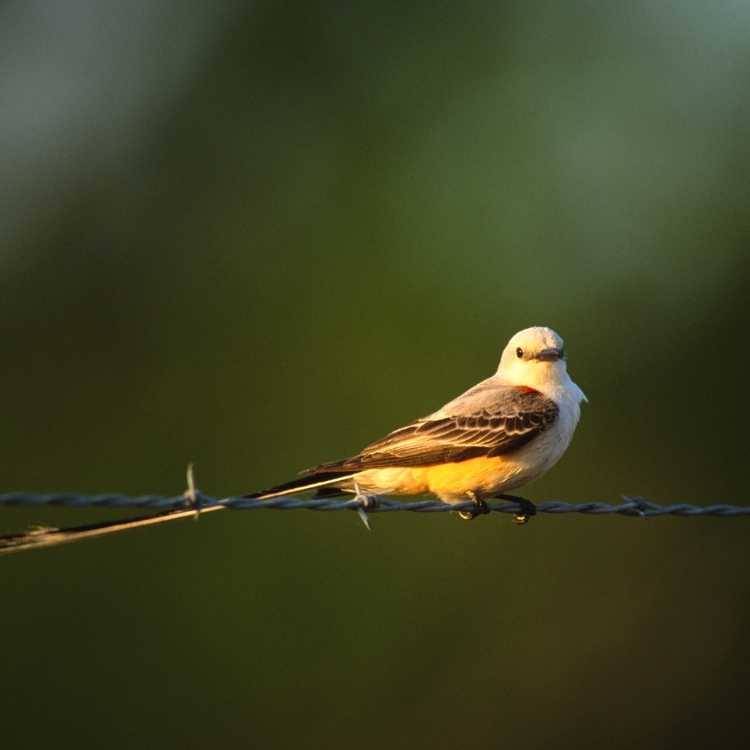
Palm Warbler
The types of palm warbler have types of yellow, white/gray underneath their wings when they are spread open while flying or types of displaying themselves. These types prefer eating various different types such as insects including spiders depending on what region this species lives in!
See more: https://en.wikipedia.org/wiki/Palm_warbler
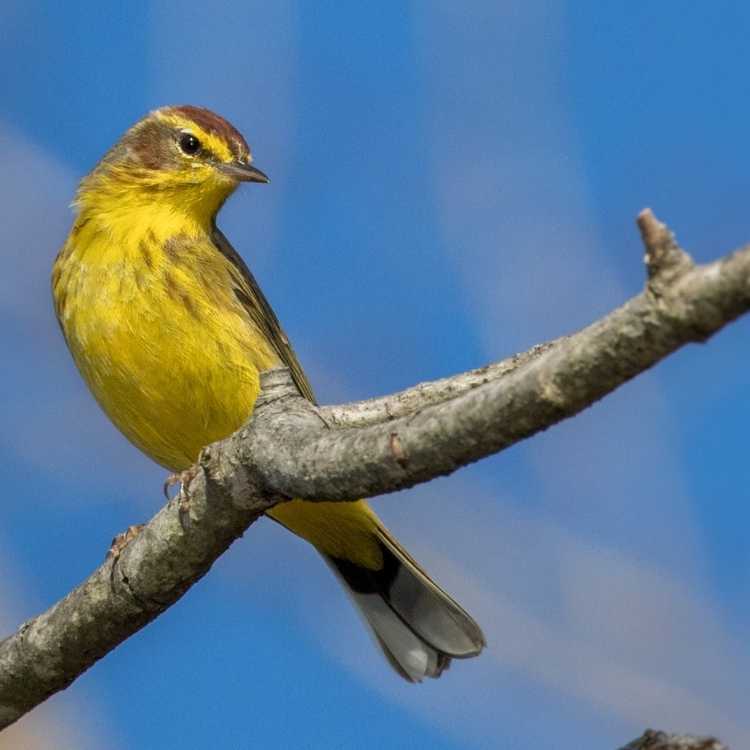
American Redstart
The American redstart is a type that has types orange and black markings underneath its wing which shows up well when these types fly by spreading their wings apart wide enough to show all the colors properly! Types like berries can be eaten sometimes depending specifically where this bird typically hangs out throughout nature.
See more: https://www.allaboutbirds.org/guide/American_Redstart/id
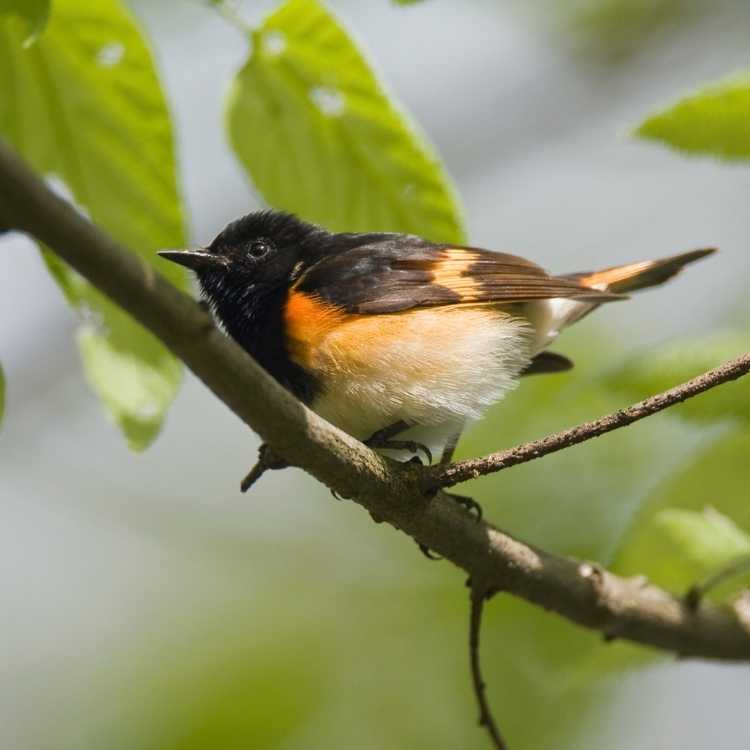
Painted Bunting
This bird is very colorful but also has some yellow in it. It eats seeds, fruits along with other things like bugs if it’s available to them based upon what part you’re able to find most easily! These types also prefer eating invertebrates such as spiders along with other types specifically depending on what region this species lives in.
See more: https://en.wikipedia.org/wiki/Painted_bunting
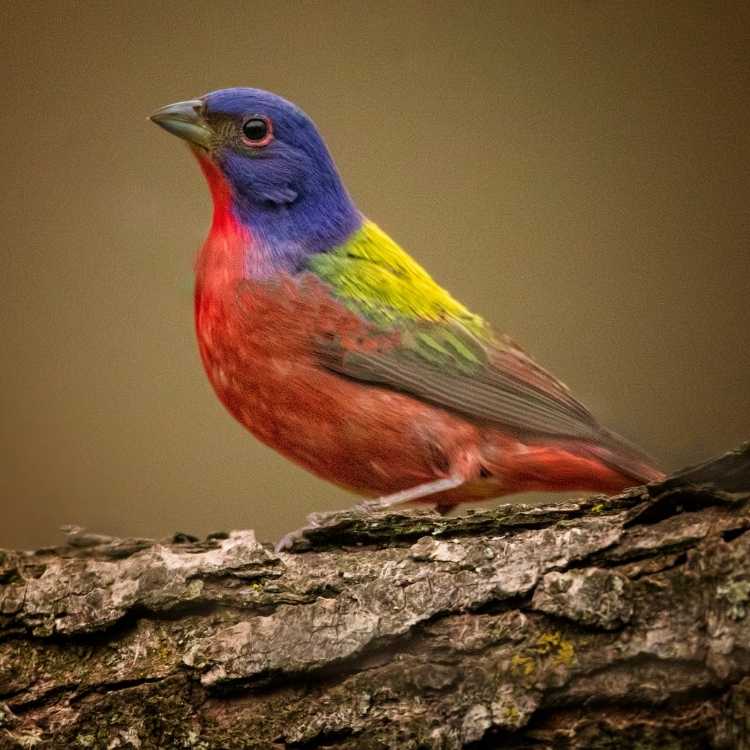
Magnolia Warbler
The types of magnolia warbler have types black, yellow underneath their wings when they are spread open while flying or types of displaying themselves. These types prefer eating various different types such as insects including spiders depending on what region this species lives in! Some things these types will mix together throughout their diets including both invertebrates/seeds/fruit all mixed together!
See more: https://www.allaboutbirds.org/guide/Magnolia_Warbler/id
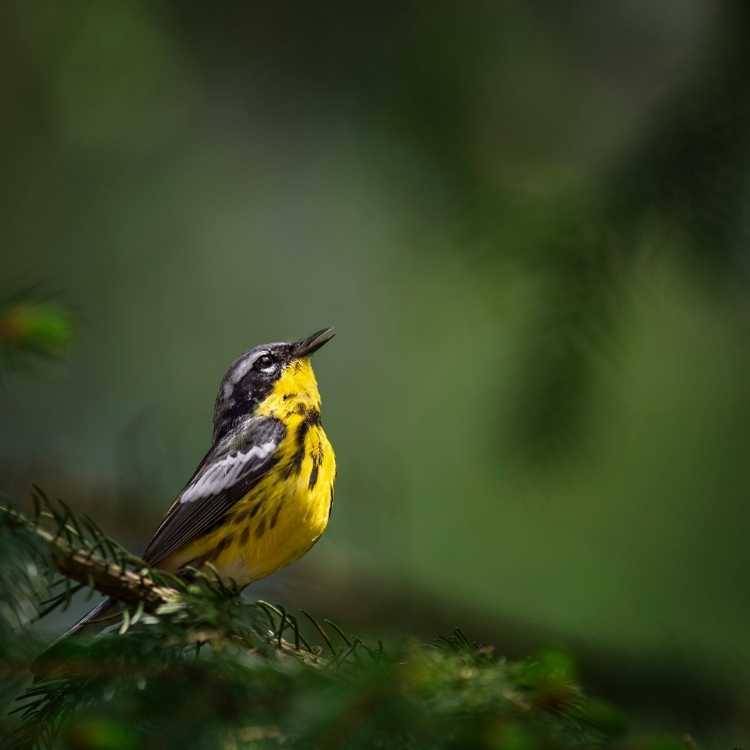
Nashville Warbler
Nashville warblers eat almost anything but it’s mainly fruits and seeds that can be found out there if you’re able to find them most easily! Although the Nashville warblers eats some bugs along with other animals like worms that may be available around where this bird typically hangs out throughout nature based upon what part you’re able to find most easily!
See more: https://ebird.org/species/naswar
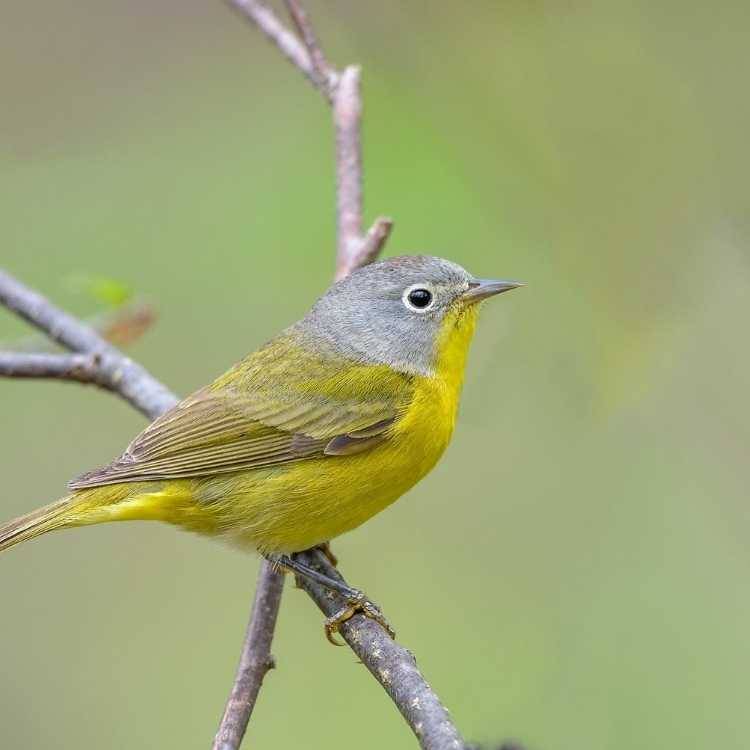
Pine Warbler
The pine warbler is a difficult bird to spot. It usually stays high up in the trees, but when it’s feeding or just looking for a company you can find them! Insects make up most of their diet with some fruit and seeds thrown into that mix too – they’re picky eaters who don’t go near anything unhealthy-looking (so watch out!). Males sing even richer trills from tops of pines while females have more nasal songs males prefer because male singers are trying to court potential mates despite being hungry all winter long themselves.
See more:https://www.allaboutbirds.org/guide/Pine_Warbler/id
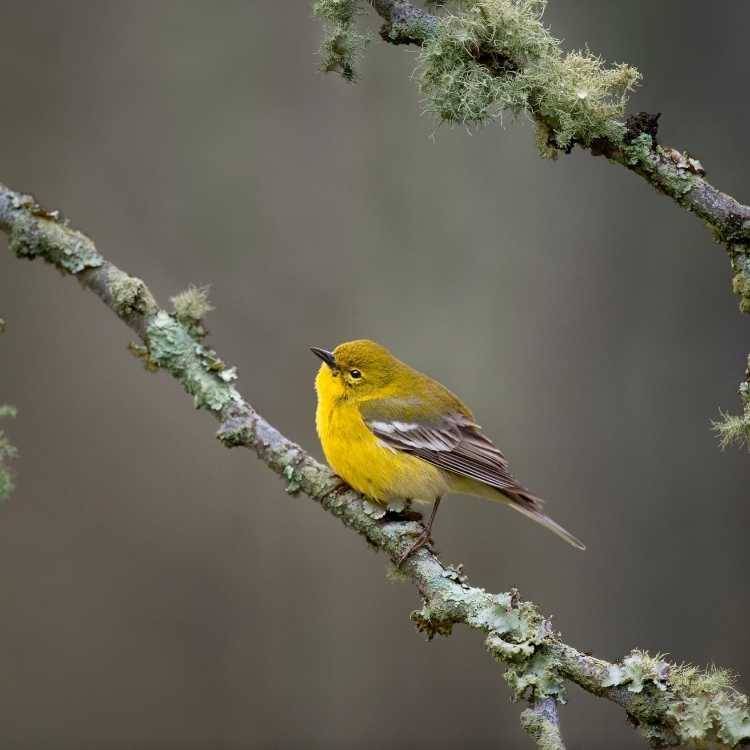
Verdin
A Verdin is a tiny bird that can be found in North America. It has an overall gray body and bright yellow head, with the shoulder patch being more of a rufous coloration than black like many other passerines have on their bodies. The base near its bill also has thick fur around it making up most if not all of what makes up this pointy little creature’s look so distinct from others birds out there!
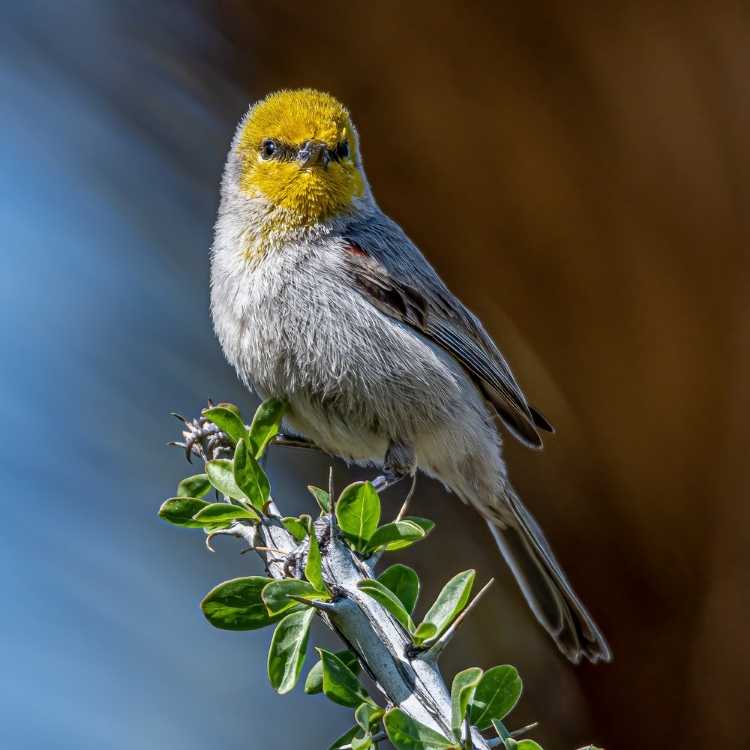
Townsend Warbler
A Townsend’s warbler is a bird of the button family that hails from North America. These singers have yellow faces with black streaks on their backs, olive upperparts and flanks that extend into an ear patch as well as thin pointed bills containing two white wing bars; adult males are distinguished by having caps colored blackish or dark green depending on if they’re male or female while females often don’t sport either coloration beyond being gray underneath at first glance – Instead, she has a more drab appearance including brown feathers overalls covered up against winter weather conditions but still providing contrast against her head patterns just like we need it here!
See more: https://www.audubon.org/field-guide/bird/townsends-warbler
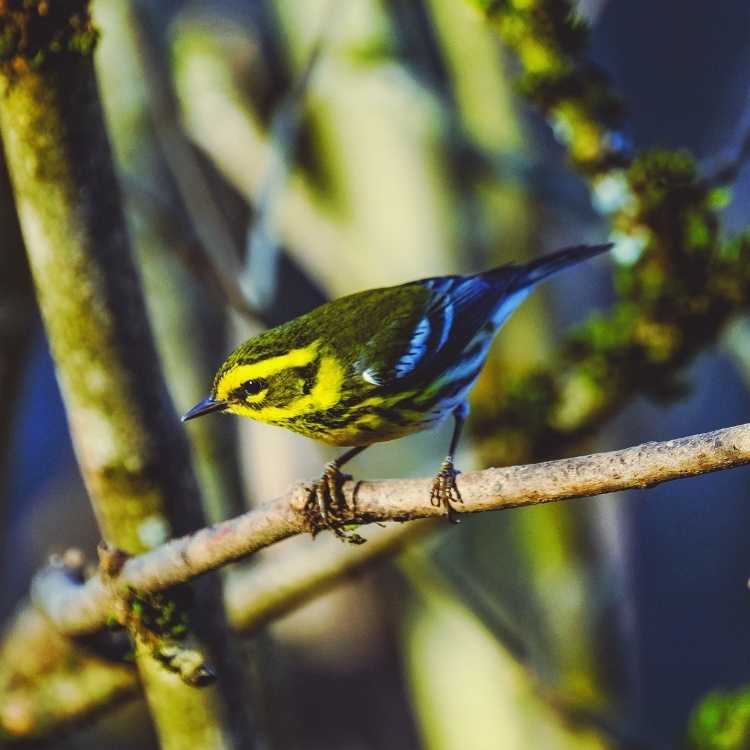
Chestnut-Sided Warbler
The types of chestnut-sided warblers have types yellowish along with black markings underneath their wing which shows up well when these types fly by spreading their wings apart wide enough to show all the colors properly! Types like seeds can be eaten sometimes depending specifically where this bird typically hangs out throughout nature. Male chestnut-sided warblers are unmistakable in appearance during the summer. They display dark streaks on their gray backs, white faces with black eyestripes and yellow crowns that give them an angelic look like they’re wearing all white wings to show off against this beautiful backdrop of greens but alas there’s nothing comparing these winged beauties when compared side by Side because females lack much or any coloration at all just having duller shades than males do except for one thing: The female’s throat which may be streaked brownish red instead orangey caramel? Who knows!
See more: https://www.allaboutbirds.org/guide/Chestnut-sided_Warbler/id
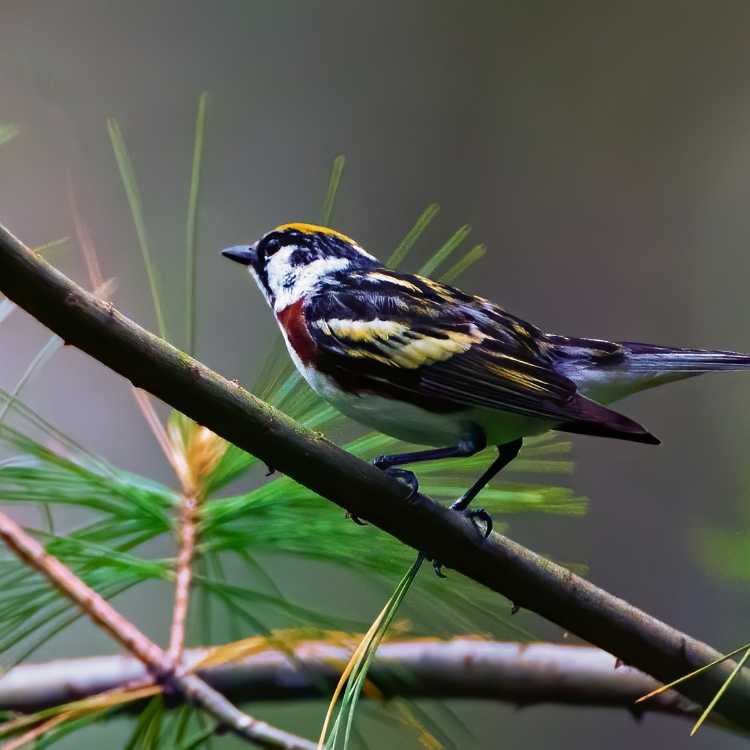
White-Eyed Vireo
The White-eyed Vireo is the most vibrantly colored songbird you’ll find in America. It’s not uncommon for this bird to be unseen, hidden away among thickets or scrubs on hot summer days as it searches through the undergrowth for insects that live there–but don’t worry! If one of your friends happens upon them (and they’re lucky), then all will soon know about their discovery thanks to these little birds’ bubbly melodies which nearly always bring attention wherever they go.
See more:https://ebird.org/species/whevir
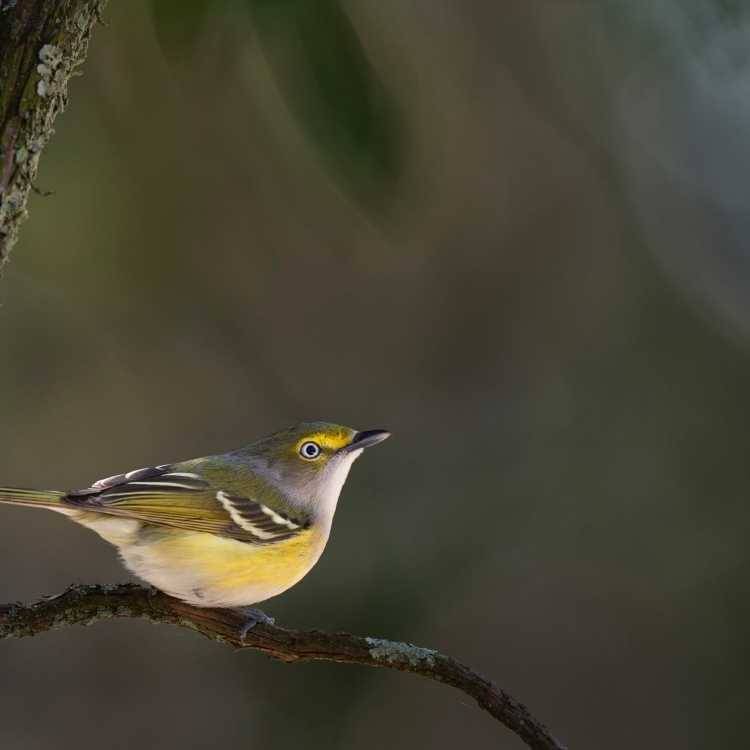
Canada Warbler
The chest, throat, and belly of the bird are yellow. It also has a dark grey back with no wing bars or tail spots but it does have an underbelly that’s white in color directed towards where its beak would be if you look at this creature from head-on rather than sighted side angles like I did while making my observations! The eyerings (spectacles) which make up almost all facial features for these immature versions; only vary slightly by size according to how developed they’ll grow into adults when breeding time comes around again later next year.
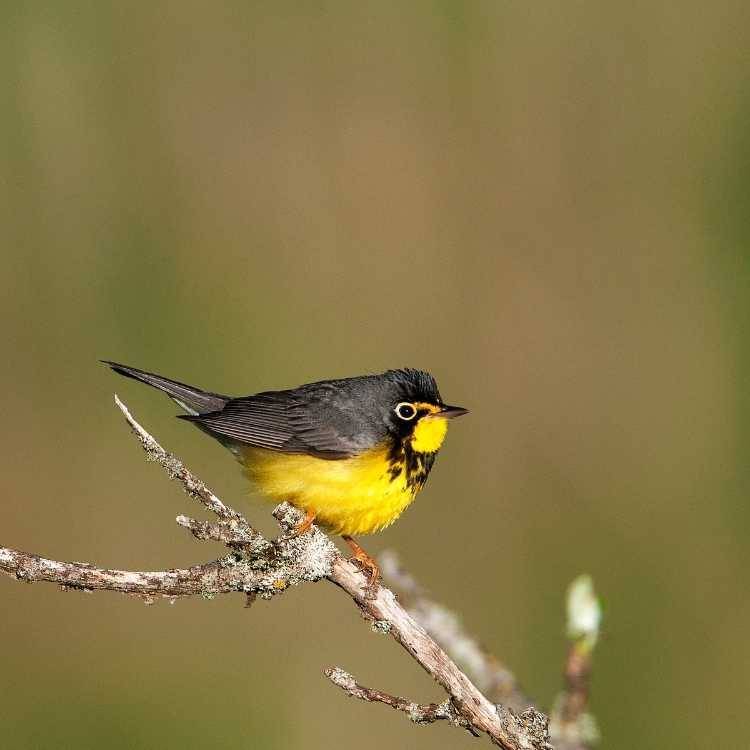
Saffron Finch
The male of the bright and lively yellow finch has an orange crown that makes it easy to spot. The females are just slightly duller than their counterparts, but in olive-brown with heavy dark streaks on their wings which make them stand out among other birds like themselves!
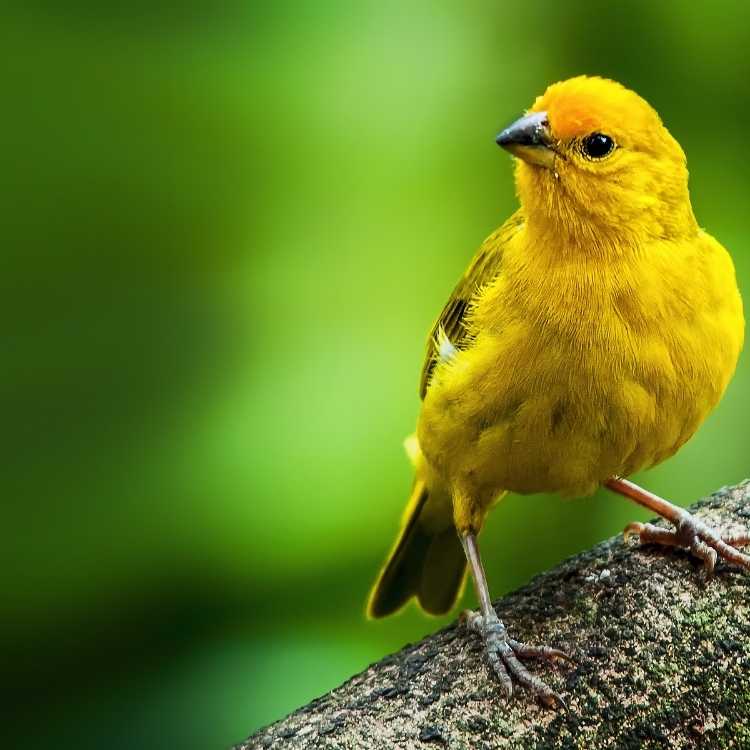
Cape May Warbler
The Cape May Warbler is a beautiful bird with striking yellow, black and white feathers. This North American songbird breeds in northern Canada but migrate to warmer southern environments during the winter months when food sources such as bugs become scarcer due to low light levels at night which favors insects over plant lifeforms like seeds or fruits available on trees near beaches where these birds spend much time feeding. The English name for this small flycatcher refers not only to its breeding place -the cape mays (cape may) Nother Jersey-, but also alludes to Alexander Wilson who described it in his Ornithology: “setä Juhani” means grandfather/father in Finnish.
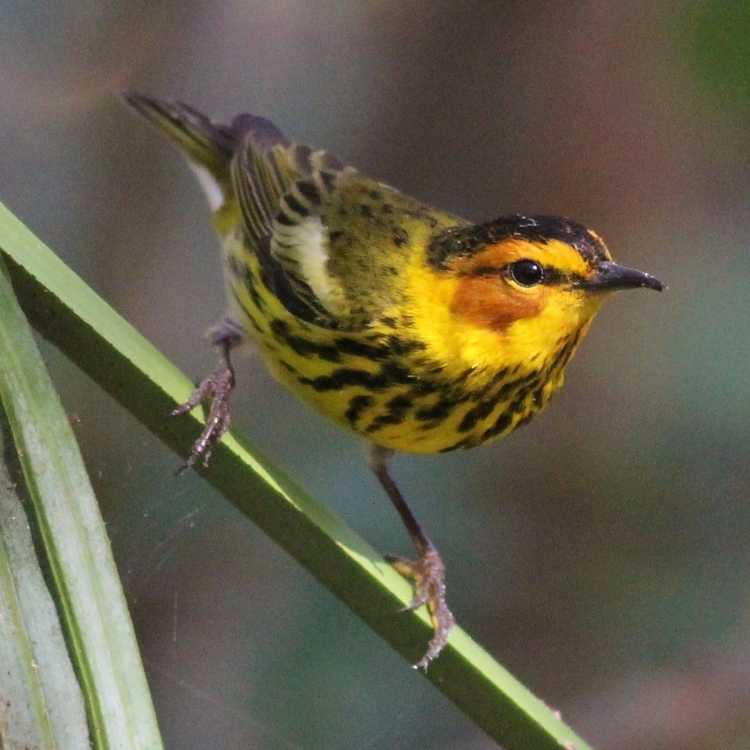
Also, check out our posts about yellow bird spiritual symbolism and a grey birds list.
Frequently Asked Questions
What do yellow birds eat in the wild?
Yellow birds have diverse diets depending on species. Most eat insects like grasshoppers, beetles, and spiders. Many also consume seeds, berries, fruits, and nectar from flowers. Some species, like warblers, prefer insects, while goldfinches favor seeds such as sunflower and thistle.
Which yellow bird species are best for beginners to keep as pets?
Domestic canaries are the most popular choice for beginners due to centuries of captive breeding and established care guidelines. They’re hardy, relatively easy to house, and known for their beautiful songs. Lesser goldfinches and American goldfinches can also adapt to captivity with proper setup.
How can I attract yellow birds to my backyard?
Plant native flowers, shrubs, and seed-bearing plants that yellow bird species prefer. Install bird feeders with appropriate food—sunflower seeds for goldfinches, nectar feeders for warblers. Provide fresh water sources and minimize pesticide use to maintain insect populations these birds depend on.
What’s the difference between American and European goldfinches?
European goldfinches have orange-yellow wings and a distinctive red face mask with bold black and white head markings. American goldfinches display brighter yellow wings without the red facial pattern. Both species love seeds, but they inhabit different geographic regions and have slight behavioral differences.
Are all yellow birds warblers?
No, yellow birds represent many families. Warblers, finches, tanagers, vireos, flycatchers, blackbirds, and herons all include yellow species. While warblers are common, other families like goldfinches (finches) and Summer Tanagers have equally striking yellow plumage and different ecological roles.
How do I identify a yellow warbler from other yellow birds?
Yellow warblers have a distinctive yellow belly with white wing spots and an overall bright yellow plumage. They’re smaller than tanagers or grosbeaks. Males often display reddish breast streaks. Their preference for willow trees and wetlands also helps distinguish them from other yellow species.
What healthy foods should I offer captive yellow birds?
Provide quality seed mixes with sunflower, nyjer, and millet seeds. Supplement with fresh vegetables, fruits, and live insects like crickets or mealworms. Offer specialized pellets formulated for canaries or finches. Include cuttlebone or mineral blocks for calcium and ensure constant access to fresh, clean water.
Do yellow birds migrate, and where do they go?
Many yellow bird species migrate seasonally. Warblers migrate between North American breeding grounds and Central/South American wintering areas. Tanagers and some finches follow similar patterns. Others like canaries and some goldfinches are year-round residents depending on geographic location and food availability.
What is the rarest yellow bird species?
The Amsterdam Albatross is among the rarest, with fewer than 10 breeding pairs remaining. Golden-winged Warblers face significant population declines due to habitat loss. Many specialized yellow bird species have limited ranges, making them vulnerable to environmental changes and human development.
How do yellow birds use their coloring for survival?
Yellow plumage serves multiple functions: males use bright coloring for courtship displays and territory defense, communicating fitness to females and rivals. In some species, yellow signals warning colors to predators. Dense vegetation where many yellow birds forage provides natural camouflage despite their vibrant appearance.
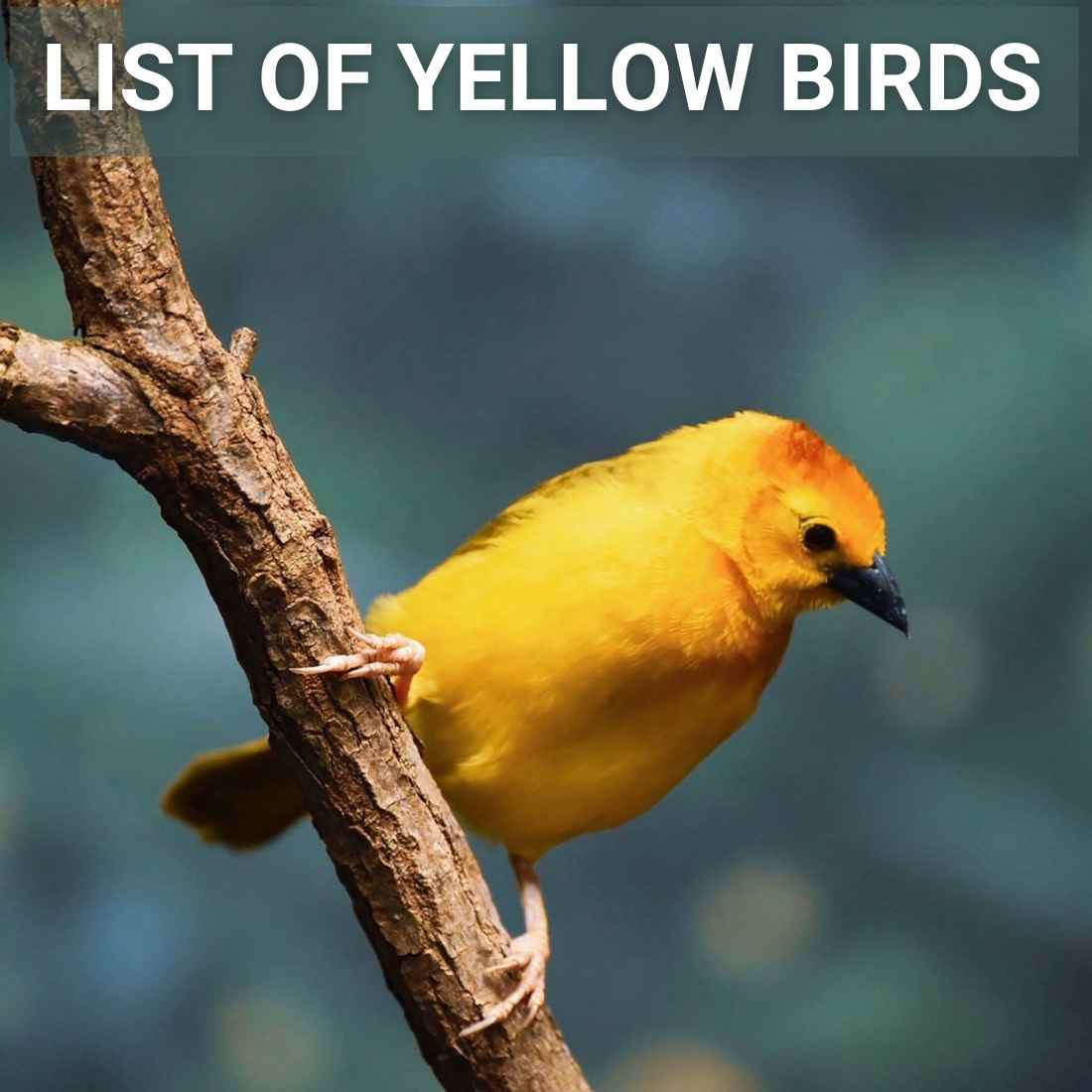

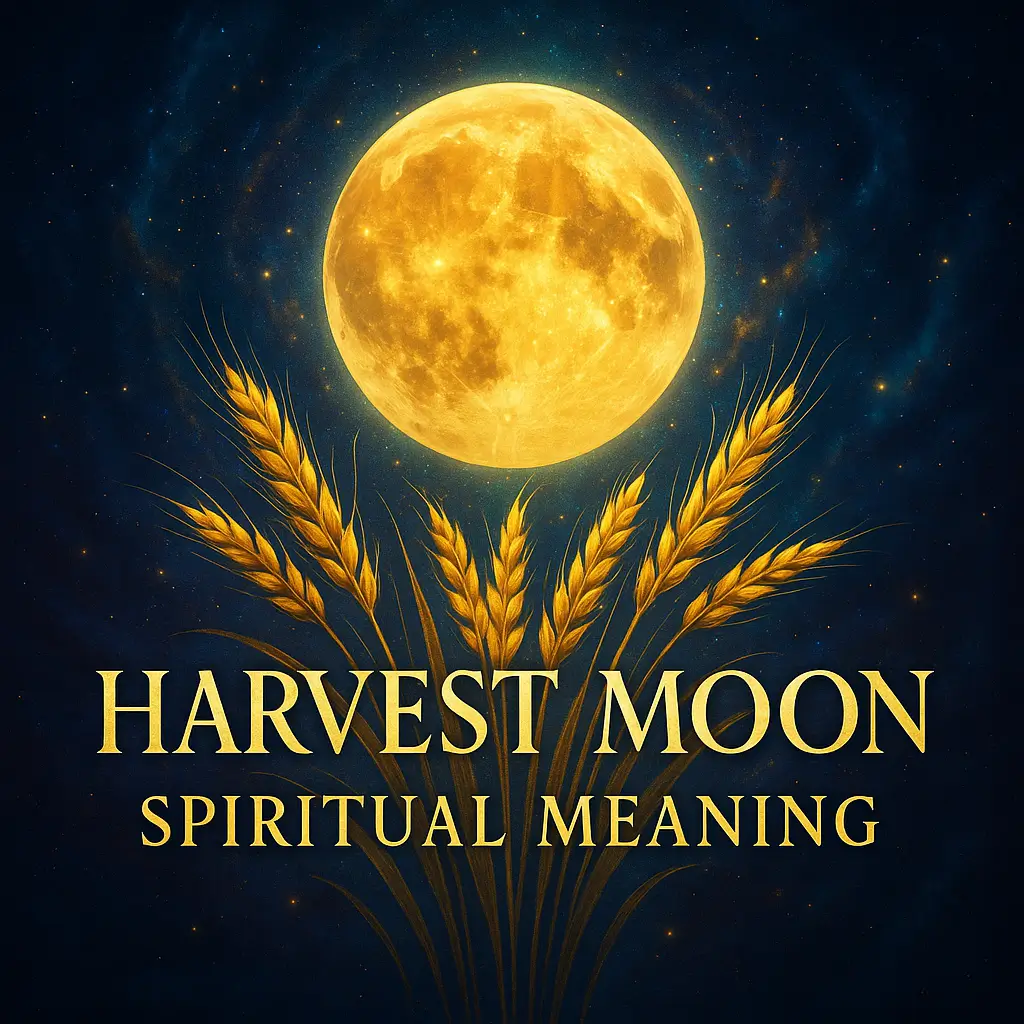

I live in Urbana, Illinois. Today I saw the most spectacularly yellow bird, and I am unable to identify it. It was approximately 4-5 inches long (rather small), and bright yellow everywhere, with the possible exception (not clearly visible) of a black throat and some black on or under the wings.Foraging in an open, mowed field. Can you identify it?
Hi Ed, thanks for commenting! My first idea would be warblers, orioles, or tanagers?
Not sure. It was probably an accidental, migrating through, and/or an immature male of some species. Not a Goldfinch, because it didn’t have the right flight pattern. I’ll be watching for it next spring.
Two beautiful small yellow birds flew by my window today in lagos nigeria and I am unable to identify them ,one had a dark patch under its throat,they have green looking wings, yellow throughout and mascara looking eyes so i thought it was a warbler,but when i compared the sounds it did not match .I made a video of the birds and i’ve never heard any sound like that before ,they have video gaming sounds !
Thanks Beth! I bet there are beautiful birds in Nigeria!
“In order to see birds, it is necessary to become a part of the silence.”
Hi, my name is Annie. Didn’t see my bird that I saw 2 of today! Completely yellow, tanager size, long thin beak with slight curve at the end, maybe silver? They came and went too quickly. Thought it was a tanager but the beak was completely different. I live in southeast Arizona, near the border of Mexico in a place called Tubac. Any ideas?
Hey Annie, hard to say really. But you sometimes can spot the Cedar Waxwing in Arizona – I love them! https://www.allaboutbirds.org/guide/Cedar_Waxwing/id